
Browse our fun-packed, helpful plant-based articles, and delve deeper into this healthy, sustainable lifestyle!


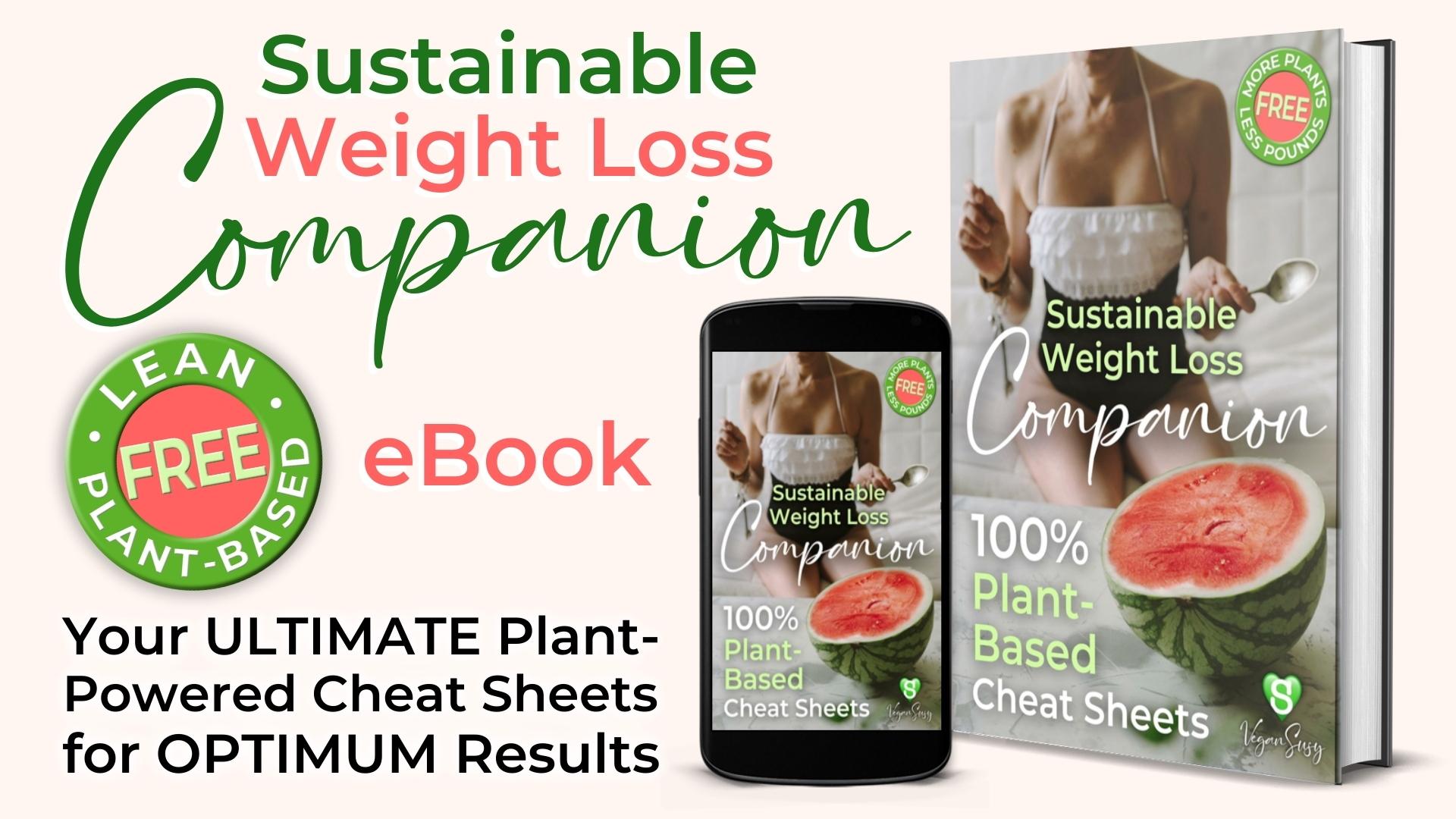
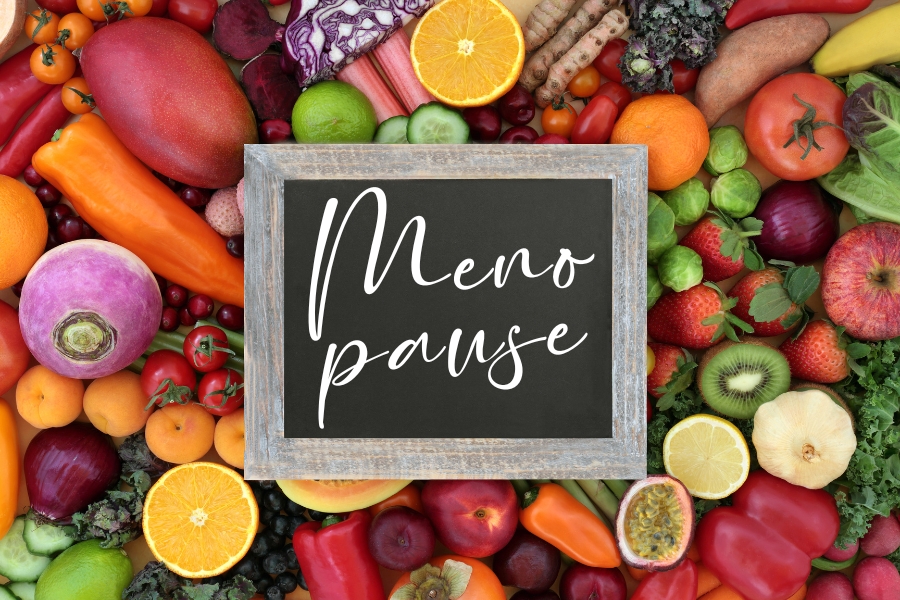
5 Ways to Manage Menopause Symptoms Naturally with a Vegan Diet
Plant-Based Lifestyle Tips For Women
Author: Plant-Based Susy
Plant Powered Relief: Managing The Menopause
Did you know that until recently, there was no word in the Japanese language for menopausal hot flushes? A traditional Japanese diet differs considerably from what Western women consume, meaning that it may be entirely possible to manage menopause symptoms with a plant-based diet.
A plant-based diet results in a reduction in hot flushes, sustainable weight loss, reduced joint pain, improved mood, and fewer UTIs. Phytoestrogen found in some plants, like soya products, acts as a form of natural hormone replacement therapy, which can help women manage menopause symptoms better.
Menopause is an entirely natural part of every woman's journey, yet it is often viewed as a major roadblock, filled with unpleasant symptoms. The good news is that nature has provided everything our bodies need to transition us through this phase comfortably.
With a positive mindset, enough exercise, and sticking to a healthy, vegan diet, it is possible to power through many dreaded menopause systems without missing a beat. Let's find out how!

Table of Contents:
Managing Menopause Symptoms with a Vegan Diet
If you can feel the menopause train slowly starting to approach, there is no need to sit back and wait for the hot flushes and puffy body to arrive — it's time to get out onto those tracks and start pushing back!
Our bodies are powerhouses that are built to cope with this natural change of life. However, we need to feed ourselves the whole food nourishment our systems require to move through into the post-menopausal phase like champions.
For anyone already in the throes of perimenopause, we are here to tell you that it is not too late to experience relief. After just a few weeks on a healthy vegan diet, you can start feeling and even looking better.
Before we get started, it is time for a bit of myth-busting. There is a common misperception that any diet where animal products are not consumed is vegan and, therefore, must be healthy.
This is FAR from the truth, as a willy-nilly vegan diet of potato chips washed down with soda would most definitely not be healthy or support relief of menopausal symptoms.
At Vegan Susy, we are about a healthy, delicious, whole food plant-based diet plan that provides enough nutrients to support a woman's body through every phase of her life.
Our recipes are filled with essential nutrients and plenty of flavour, and it is this vegan diet that can help ease the uncomfortable symptoms of menopause.
Let's dig in and find out how to manage menopause symptoms with a plant-based diet.
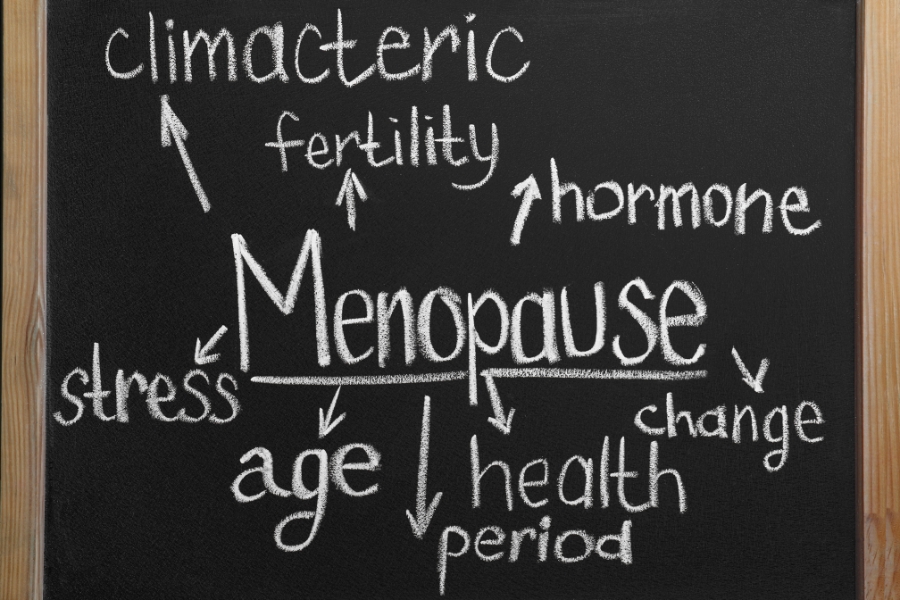
What Happens to Our Bodies During Menopause?
Before we move on to how to support our bodies through the menopause phase, we must understand what causes the changes to occur. It may be surprising to learn that despite the often profound symptoms, the leading cause boils down to one thing: hormones.
Somewhere in our 40s or early 50s, the ovaries naturally start to produce less oestrogen and progesterone. While this may not sound like much, it is important to remember that hormones play a central role in how our bodies function, and imbalances can have profound effects at all stages of life.
Actual menopause only happens once a woman has not had a period for a year. Other menopausal symptoms may persist, but the time that starts precisely one year after the last menstrual period is referred to as post-menopause.
Terms surrounding menopause are similar and are often used interchangeably, so let's break it down into the 3 phases:
1. Perimenopause
Periods are changing, but still present
Symptoms of menopause are present
2. Menopause
Periods have been absent for 12 months
Symptoms of menopause are present
3. Post-menopause
Follows immediately after menopause is reached
Symptoms may decrease but can linger for months or years after reaching menopause.
If we view it like this, menopause is technically only the single day that marks the anniversary of 12 months since the last menstrual period. However, be that as it may, uncomfortable menopause-related symptoms hang around through all three phases and can greatly impact a woman's quality of life.

What Are Common Menopausal Symptoms?
All women experience menopause differently. It can also happen at slightly different ages; while most start experiencing symptoms in their mid-40s, it is not uncommon to start experiencing symptoms earlier or later.
The symptoms of menopause also differ from one woman to another. While some women experience intense hot flushes, night sweats, and weight gain from the start, others experience far fewer symptoms.
In addition to just a change in the normal pattern of periods, the NHS lists 20 additional signs and symptoms commonly associated with menopause. These include:
Hot flushes
Night sweats
Insomnia
Joint stiffness
Weight gain
Urinary Tract Infections (UTIs)
Brain fog
Mood changes
Increases in feelings of anxiety and stress
And as if this doesn't sound grim enough, they add that symptoms can go on for years.
But there is hope and natural relief available. Simply by eating plant-based foods that support our changing bodies, many of these uncomfortable symptoms can be significantly reduced or averted altogether!

5 Ways to Manage Menopause Symptoms with a Plant-Based Diet
Now that we know that a decrease in oestrogen and progesterone causes menopause, it is a relief to realize that there are many natural ways to tackle many uncomfortable symptoms associated with this phase of life.
One of the most effective menopause-symptom-busters is switching to a healthy vegan diet.
This may sound too simple, so let's go through 5 ways that you can harness the power of plants to get your body back to feeling and looking the way nature intended.
1. Balance Oestrogen (Estrogen) Levels by Increasing Phytoestrogen Intake
Phytoestrogen is a big word made of two parts that mean 'plant' and 'oestrogen.' As it turns out, some earth-based foods act as a type of plant-powered natural hormone replacement therapy.
Decreasing oestrogen levels are primarily responsible for many of the negative symptoms of menopause.
Consuming a diet rich in phytoestrogen is an easy (and delicious!) way for women to rebalance their hormones during menopause.
Foods that are naturally high in phytoestrogen include:
Soya products — including tofu and edamame
Legumes — these include chickpeas, lentils, peanuts and split peas
Whole grains — for example, barley, rice, quinoa, and oats
Seeds and nuts — including almonds, flaxseed, sesame seeds, sunflower seeds and pistachios
Vegetables rich in phytoestrogen include — spinach, sweet potatoes, celery, broccoli, carrots and cabbage
Certain fruits — including pomegranates, apples and grapes
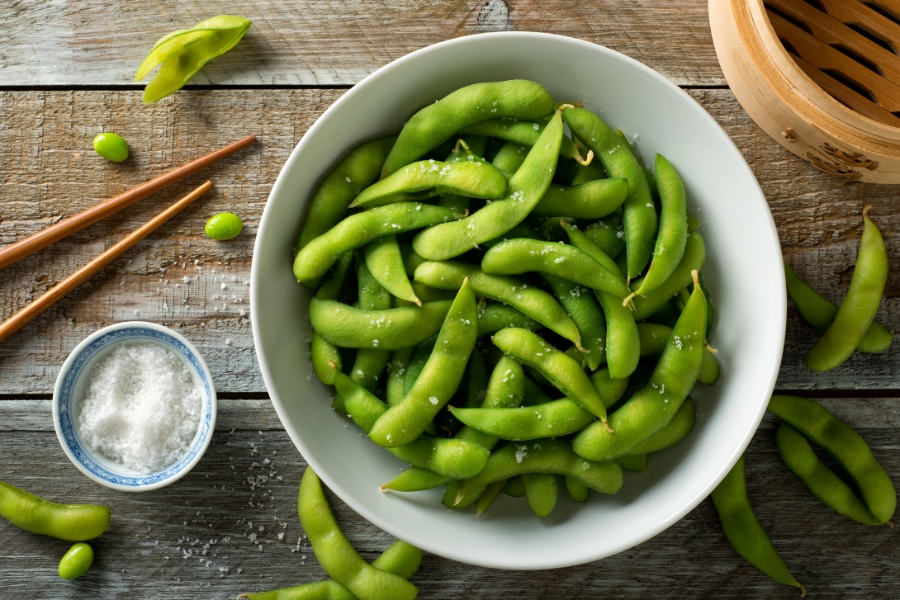
A 2020 study found that an increased intake of natural phytoestrogens through diet brought on a reduction of hot flushes.
In addition, they have been linked to a decrease in cholesterol levels, which promotes heart health, a reduction in inflammation in the body, and even the fight against the development of some cancers.
2. Manage Your Weight with a Plant-Based Diet
Many unpleasant menopause symptoms are exacerbated as a result of being overweight. Carrying around extra kilograms not only makes us feel uncomfortable, but it also changes how our bodies respond to menopausal symptoms.
Put simply, overweight women are far more likely to feel the full effect of hot flushes. A recent study has shown that excess body fat works as an insulator and can make the internal inferno experience even more intense.
Carrying extra weight also has a knock-on effect as more intense hot flushes lead to disruptive night sweats, which result in tiredness, feeling blue. Obesity also puts additional strain on the cardiovascular system and joints.
The solution is as simple as switching to a healthy, plant-based diet, which will help to get the excess weight off and keep it off! There is no need to see-saw back and forth on fad diets.
With some proper planning and a little help from a mentor, you can enjoy sustainable weight loss on a whole food plant-based diet. At the same time, you may be able to kick many unpleasant menopause symptoms, like hot flushes and night sweats, into touch for good.
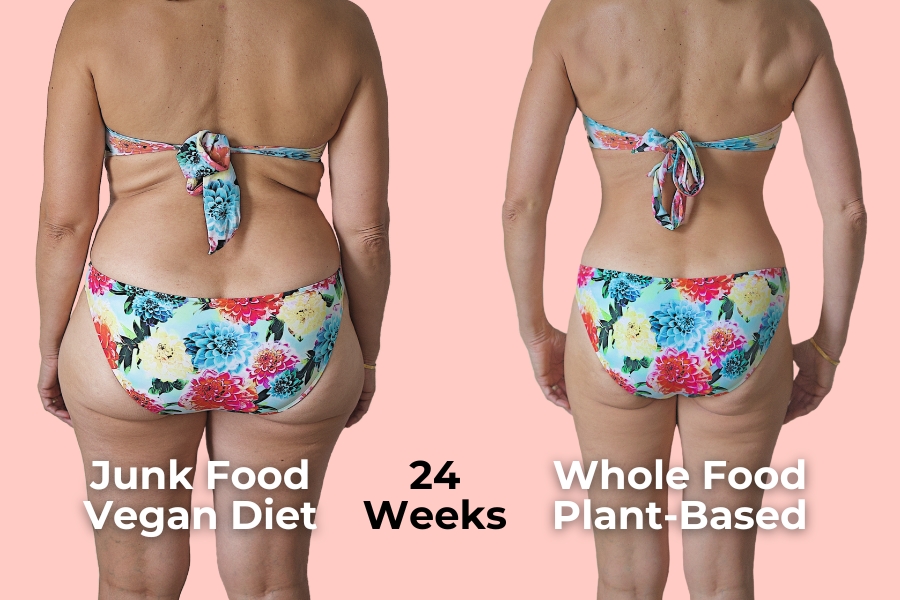
3. A High Fibre Plant-Based Diet Helps Combat Joint Pain
Menopausal joint pain often plays second fiddle to hot flushes, but for women who experience it, it can be debilitating.
Like all the symptoms of menopause, joint pain is primarily caused by a decrease of oestrogen in the body, but there are ways to utilize the power of plants to manage this condition.
A diet that is high in natural, plant-based foods like fruits, whole grains, and vegetables will result in better gut health. A spinoff from this is a decrease in inflammation in the body, which can lead to a reduction of menopausal stiffness and overall joint achiness.
Of course, a plant-rich diet is highly likely to result in weight loss, which also takes strain off your joints. The most effective way to fight menopausal joint pain is a combination of a vegan diet and enough of the right sort of exercise.
4. Reduce the Risk of UTIs With a Healthy Plant-Based Diet
The drop in oestrogen (estrogen) in women's bodies can cause a lot more than just pesky hot flushes.
Urinary Tract Infections (UTIs) are common amongst menopausal women, as ‘good’ bacteria in the vaginal microbiome decrease, making way for an increased number of bacterial infections.
The conclusion of one study conclusively showed that women who switched to a vegan diet were 18% less likely to develop a UTI. Although this study was not only looking at menopausal women, its findings are encouraging in the fight to manage menopause symptoms with a plant-based diet.
Life without the uncomfortable, heavy, burning sensation while urinating is certainly a very welcome benefit that a plant-based diet provides!
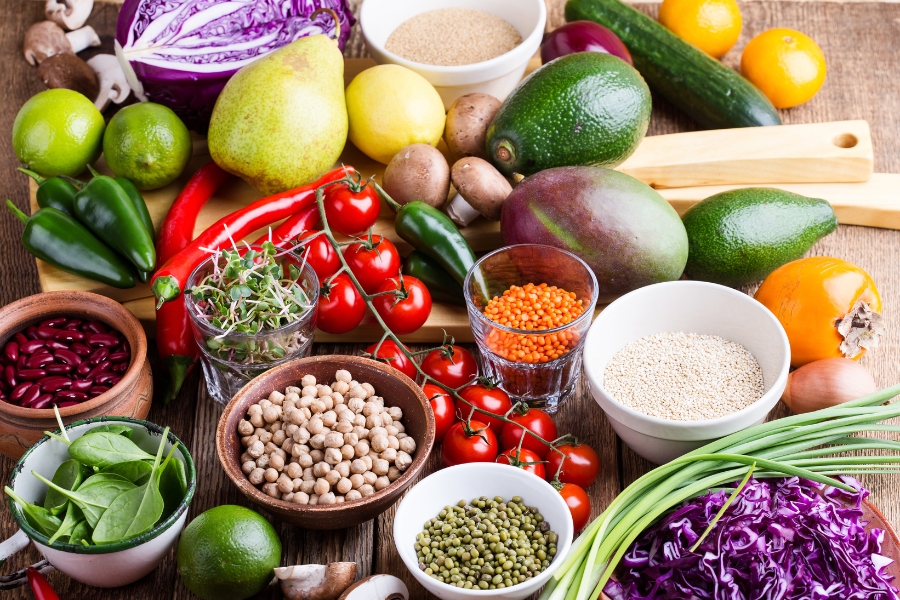
5. A Vegan Diet Can Lower Feelings of Stress and Anxiety
Brain fog, mood swings, anxiety, and feelings of intense stress are commonly reported symptoms of menopause. However, nourishing our bodies with a healthy, whole-food, plant-based diet has been shown to boost feelings of well-being.
It has long been accepted that food and mood are inextricably tied together. Natural food sources that contain mood-boosting properties include:
Walnuts, flax, and chia seeds
Leafy green vegetables
Sunflower and pumpkin seeds
Watercress
Mushrooms — Try Vegan Susy's delicious, vegan mushroom stroganoff
Peas and broccoli
A definitive link has also been found between high amounts of dietary fibre and a reduction in depression among premenopausal women.
So, while changes in hormone levels often result in feelings of anxiety and depression, it is possible to tackle this common symptom of menopause and take back your happiness by switching over to a plant-based diet.
Frequently Asked Questions
What type of food has the highest oestrogen?
Soya products contain the most phytoestrogens, which can help to balance oestrogen levels and reduce many menopause symptoms. Popular soya items in a vegan diet include soya milk, tofu, soya sauce, tempeh, and edamame.
How do vegans get calcium?
Women on a plant-based diet can easily get sufficient calcium from sources including green leafy vegetables, fortified soya, pea or oat drinks, and dried fruits such as raisins, figs, prunes, and apricots. In addition, all bread in the UK is fortified with calcium.
How can I reverse menopause naturally?
It is not possible to reverse the progression of menopause as it is an entirely natural part of a woman's aging process. By following a healthy vegan diet, you will be able to manage many uncomfortable menopause symptoms more comfortably. For example, a healthy plant-based diet can decrease the likelihood that you will experience intense hot flushes and night sweats.
Can a vegan diet prevent weight gain during menopause?
Absolutely! A whole-food vegan diet promotes sustainable weight loss by reducing processed foods and increasing fiber intake.
How does a plant-based diet reduce stress and anxiety?
Foods like walnuts, chia seeds, mushrooms, and leafy greens support brain health, reducing stress, anxiety, and mood swings.
Conclusion:
While we can't turn back the hands of time, it is possible to manage many of the most uncomfortable symptoms of menopause by following a healthy plant-based diet.
Supporting your body through the changes by providing the whole food goodness it needs will result in a healthier, happier, lighter version of you — even during the menopause years.

💚 "Happy Plant-Based Eating & Exercising!" 💚

Plant-Based Susy
Plant-Based Nutrition Professional & Weight Loss Coach
Empower Yourself: Embark on a Delicious Fat Loss Adventure

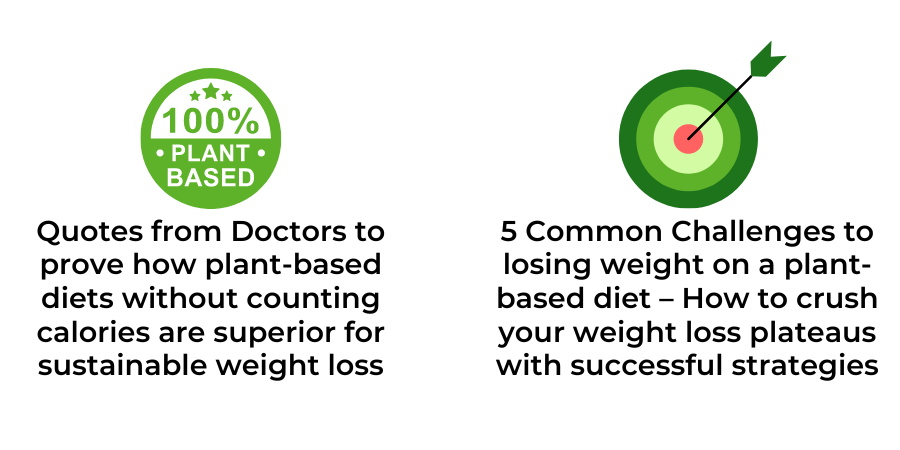
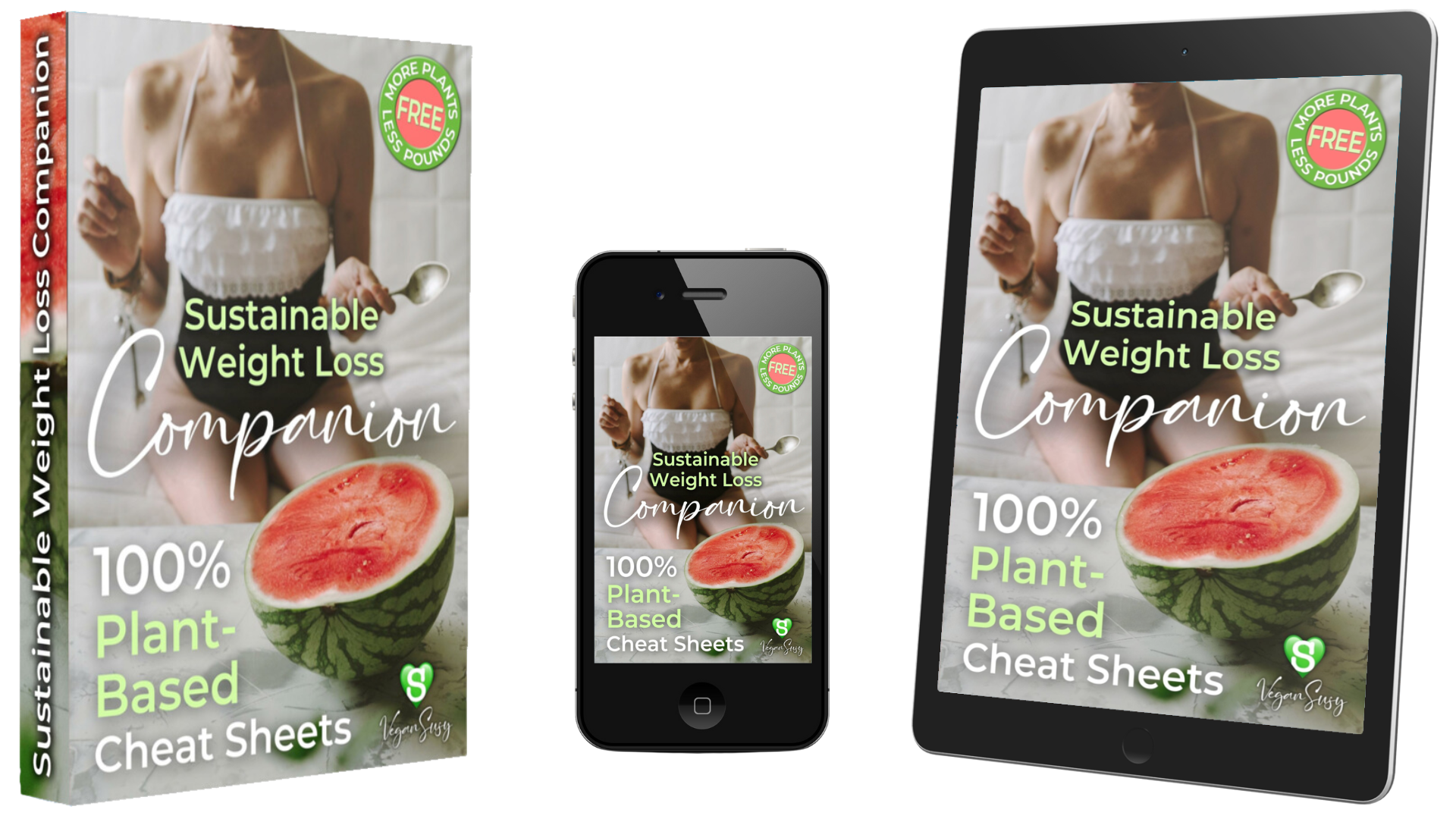
🍉 Get Ready to Jump Start Your Fitness Goals AND DISCOVER A HEALTHIER YOU!
🍉 Let's Make Your Fat Loss & Optimum Health Journey a Delicious Success Story!
🍉 Get The FREE Sustainable Weight Loss Companion eBook and CHEAT SHEETS!
More Free Resources
Unlock Your Transformation Today!
© 2025 VeganSusy Ltd. All Rights Reserved


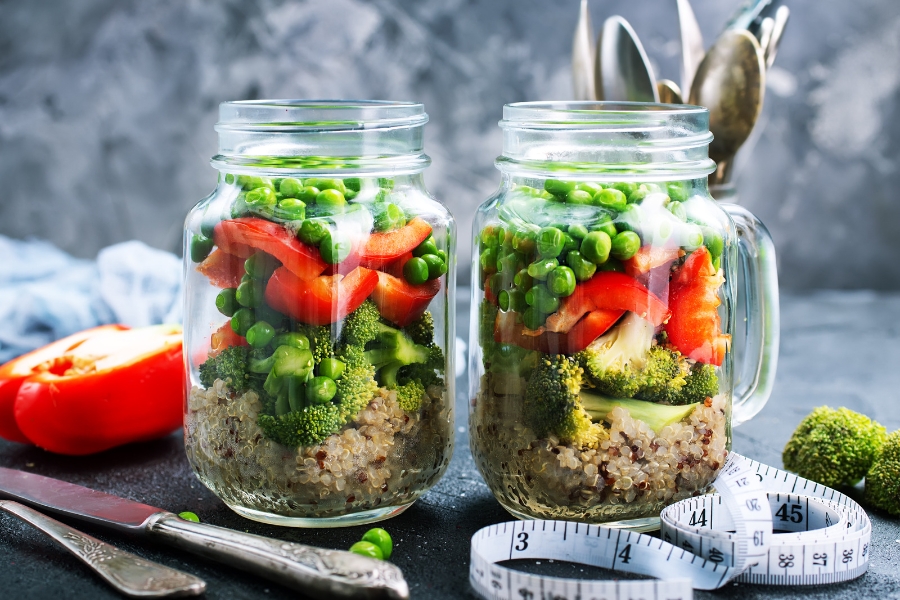
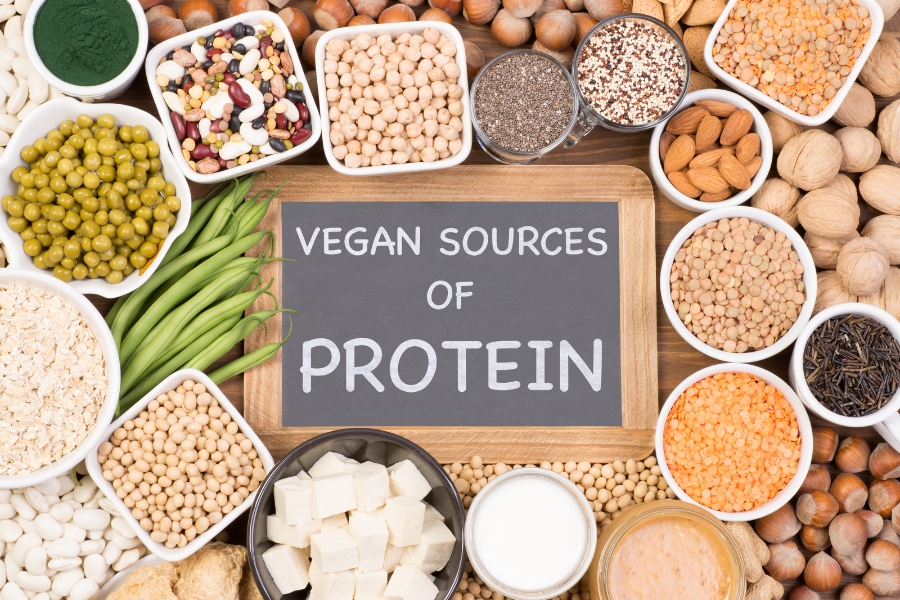

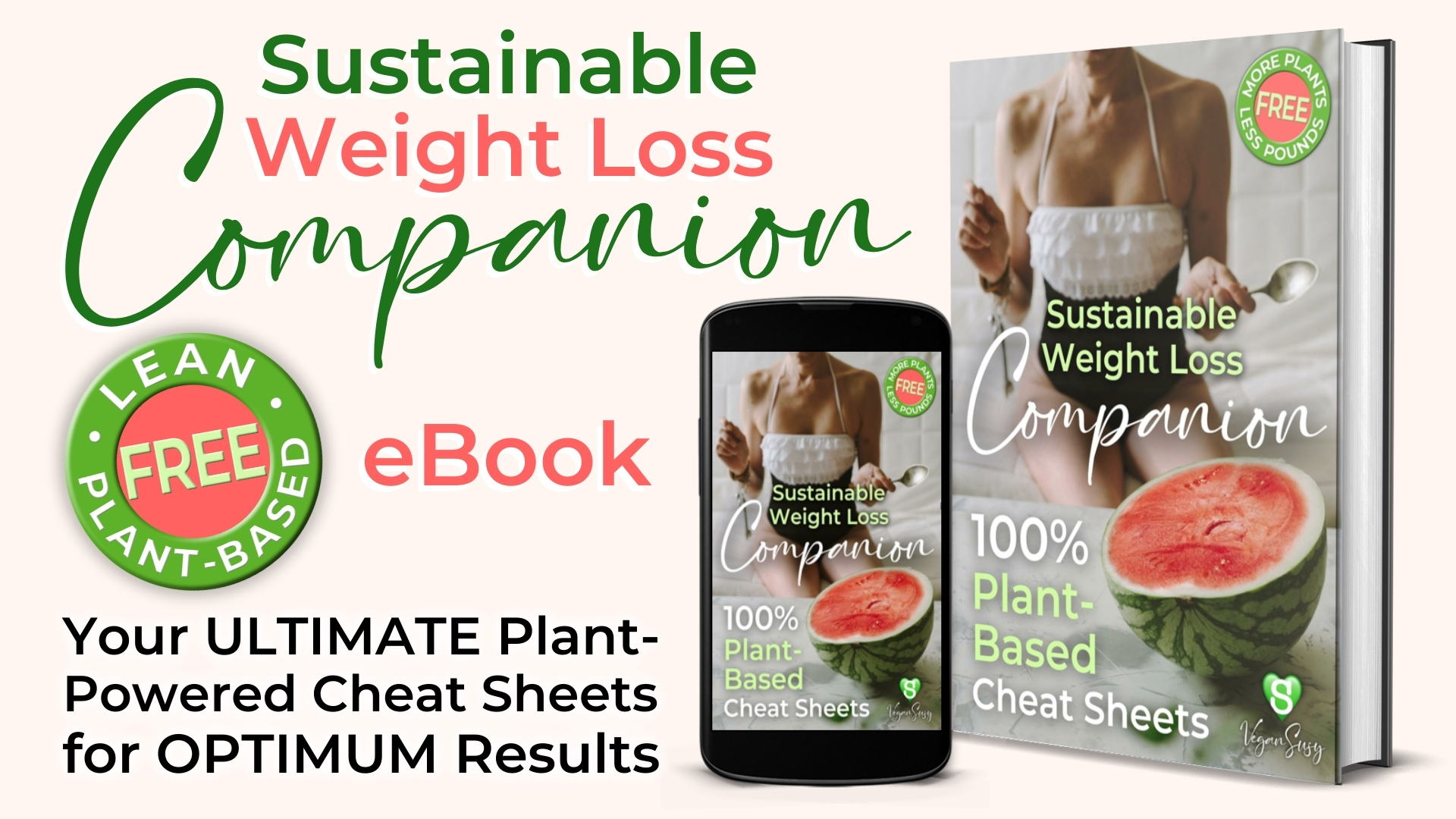





Facebook
Instagram
Youtube
Pinterest